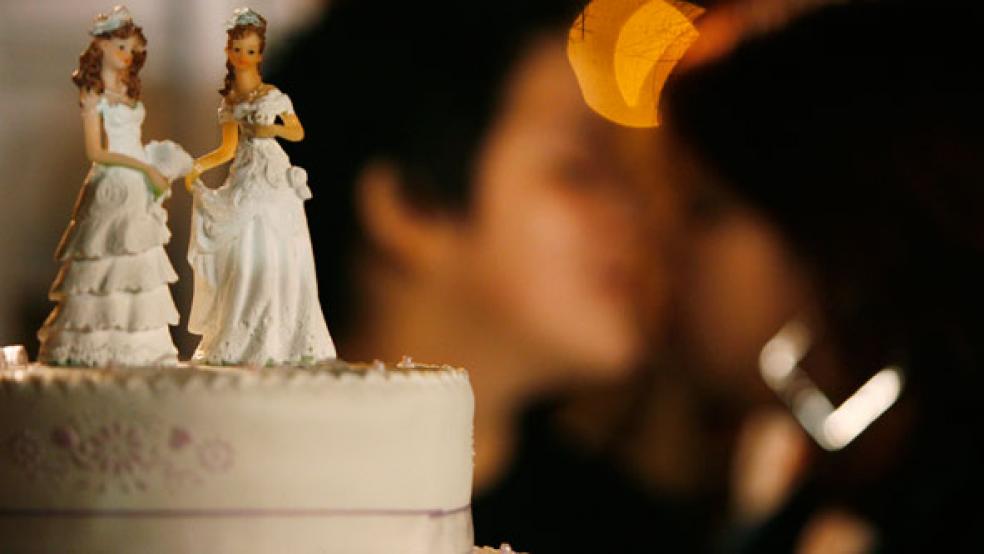A majority of U.S. Republicans would attend the same-sex wedding of a loved one, a Reuters/Ipsos poll showed on Wednesday, highlighting the political risks for Republican presidential candidates who stake out positions against gay marriage.
Though some Republican White House hopefuls have tried to insert nuance into their positions on gay marriage - something that polling shows most Americans back - their opposition is clear.
Adamant opposition is popular with the party's conservative wing, whose support is critical in the presidential nominating process.
The question of whether or not a candidate would attend the gay wedding of a loved one has become an increasingly common litmus test for candidates on the issue.
Former Florida Governor Jeb Bush said on Tuesday he would attend the same-sex wedding of someone he cared about. U.S. Senator Marco Rubio, also from Florida, told an interviewer he would do the same, though he opposes gay marriage.
Wisconsin Governor Scott Walker said he has been to a gay wedding reception but defines marriage as between a man and a woman. Senator Ted Cruz of Texas, known for his appeal to the party's right-leaning Tea Party wing, has said he has not.
A Reuters/Ipsos poll showed most Republicans across the country would show up for same-sex nuptials.
The poll showed 56 percent of Republicans would attend the gay wedding of a loved one if invited. That compares with 80 percent of Democrats and 70 percent of independents, who said they would go.
Overall, 68 percent of Americans would attend, the poll showed, while 19 percent would not and 13 percent were unsure.
The poll's results suggests Republicans who stake out strong opposition to gay marriage could be on shaky political ground if their ultimate goal is to win the White House.
Though a right-leaning, anti-marriage position may appeal to important conservative voters in states with early nominating contests such as Iowa and New Hampshire, that stand could hurt an eventual nominee in the general election, in which cross-party appeal and independents play a larger role.
The poll comes as the Supreme Court deliberates a legal challenge to laws prohibiting same-sex unions. Justices appeared sharply divided on Tuesday on whether the U.S. Constitution guarantees a right to same-sex marriage.
The online poll was conducted between April 23-27 and included 1,752 adults aged 18 and older, among them 751 Democrats, 567 Republicans and 248 independents.
The Reuters/Ipsos poll is measured with a credibility interval. It has a credibility interval of plus or minus 2.7 percentage points for all adults, 4.7 percentage points for Republicans, 4.1 percentage points for Democrats, and 7.1 percentage points for independents.
(Additional reporting by Steve Holland; Editing by Leslie Adler)

